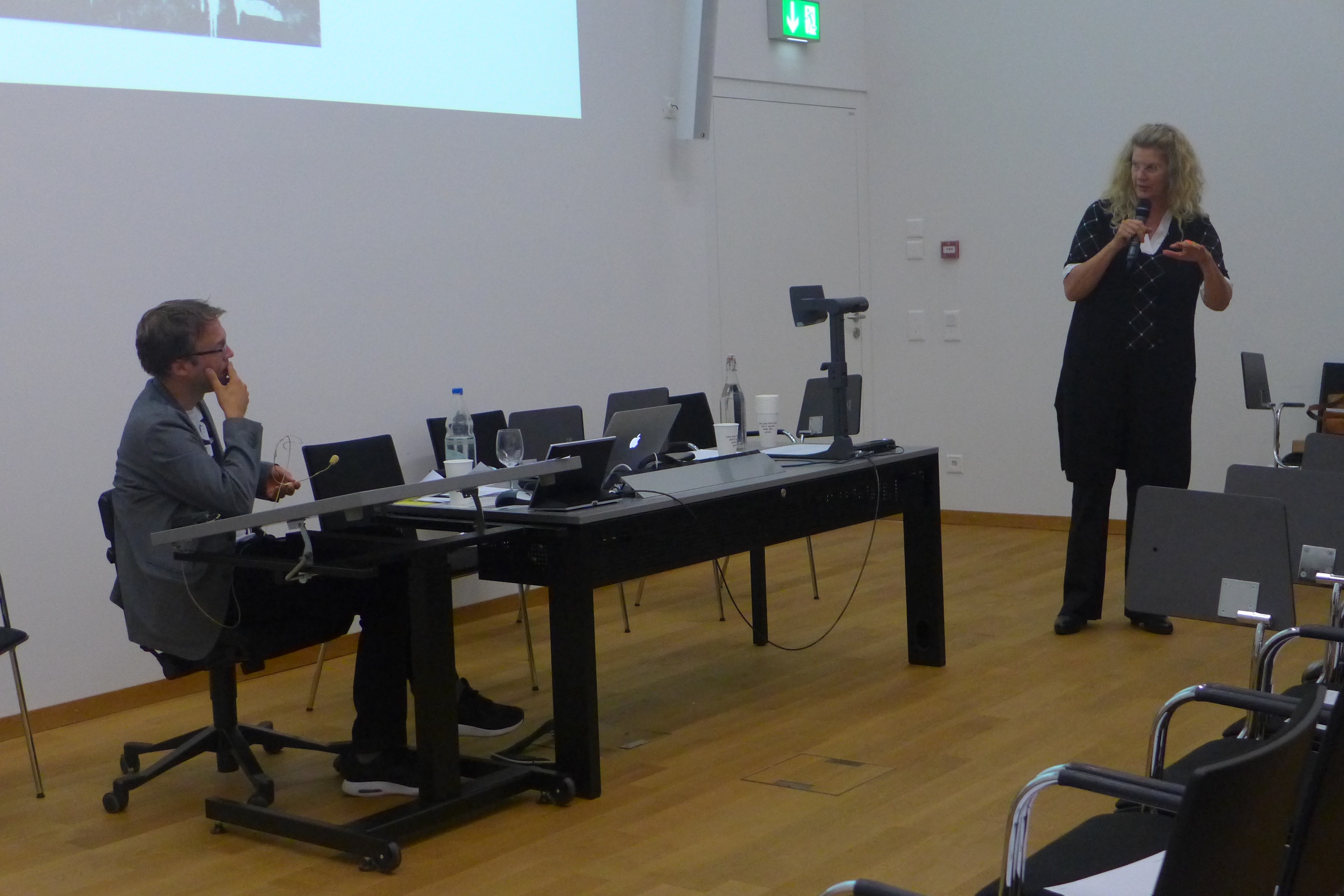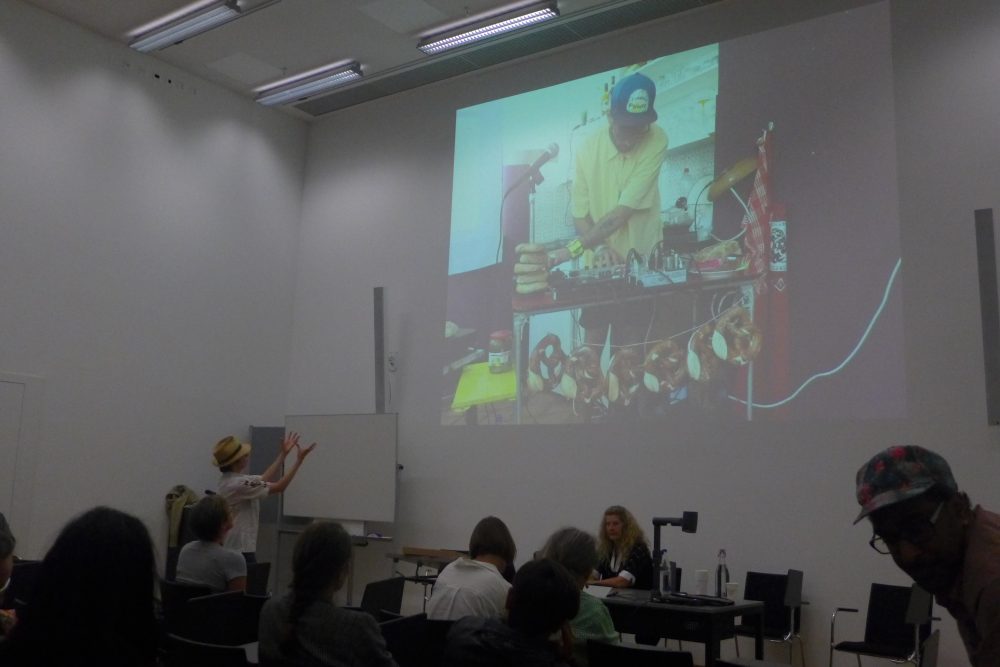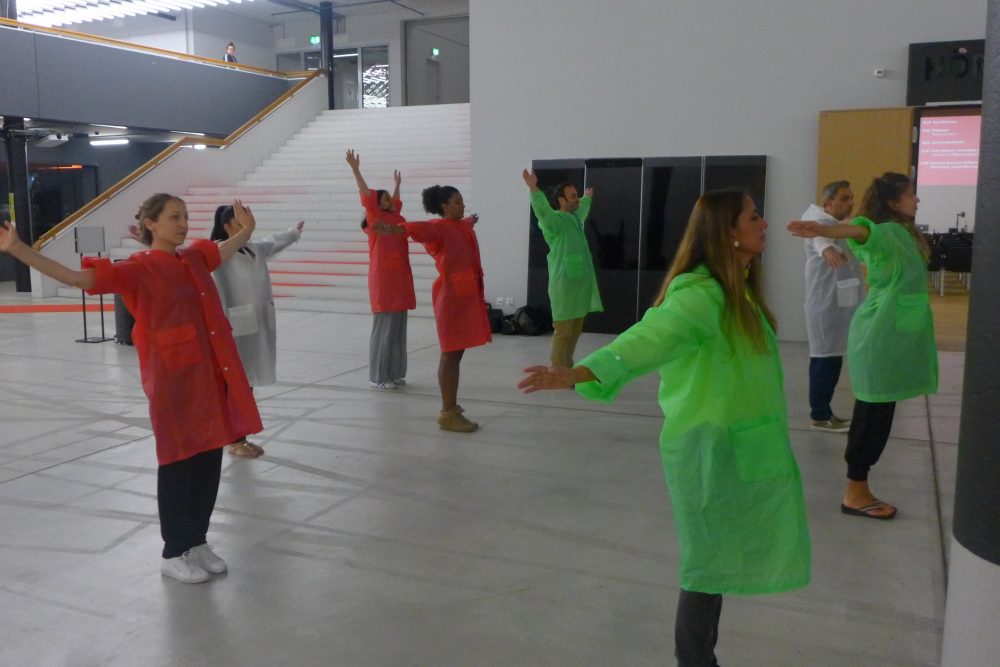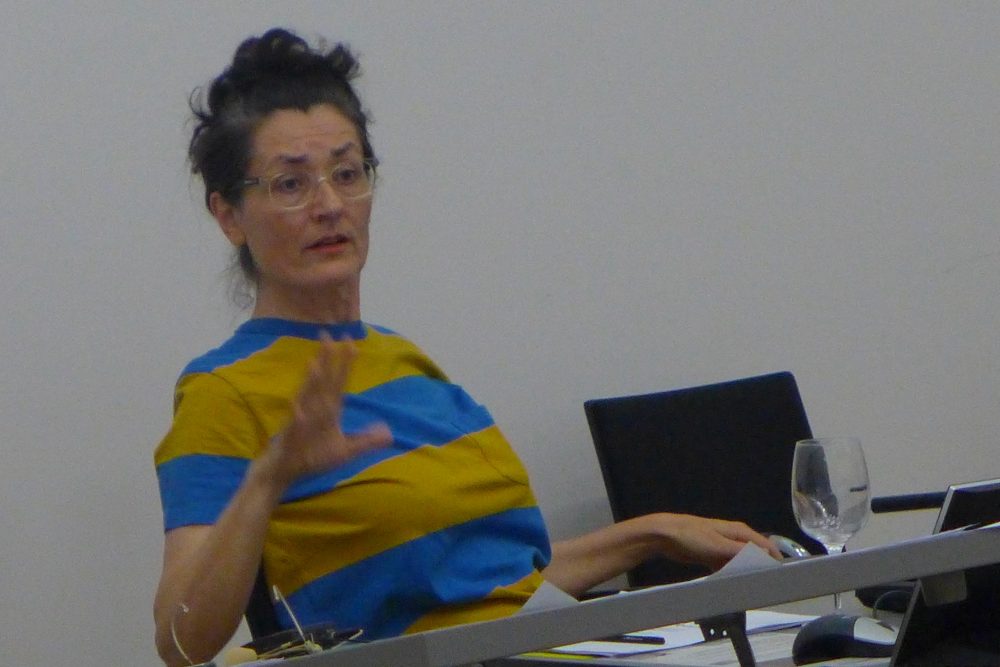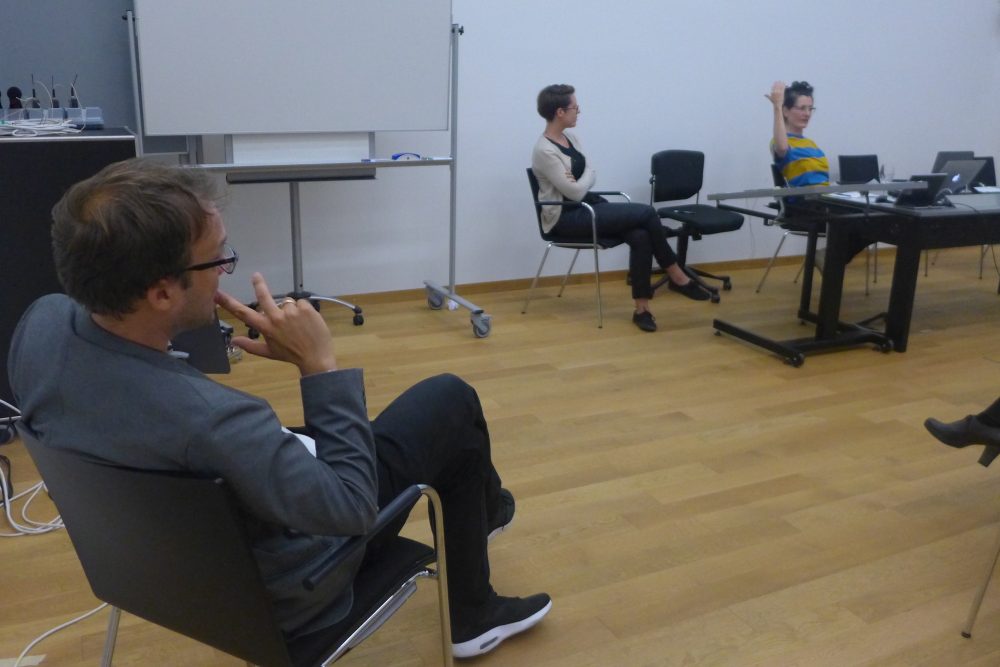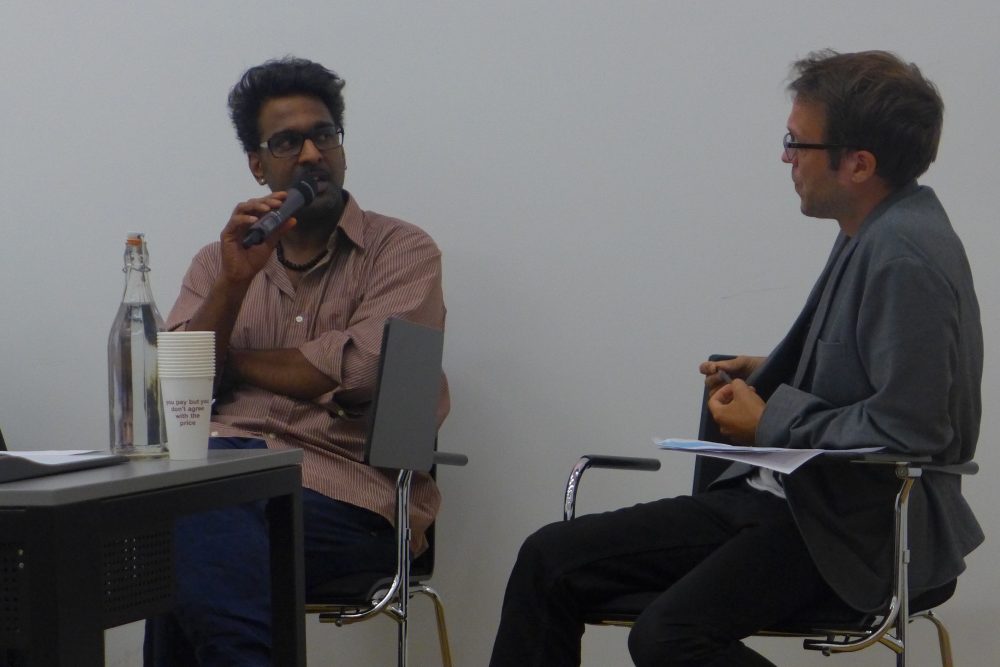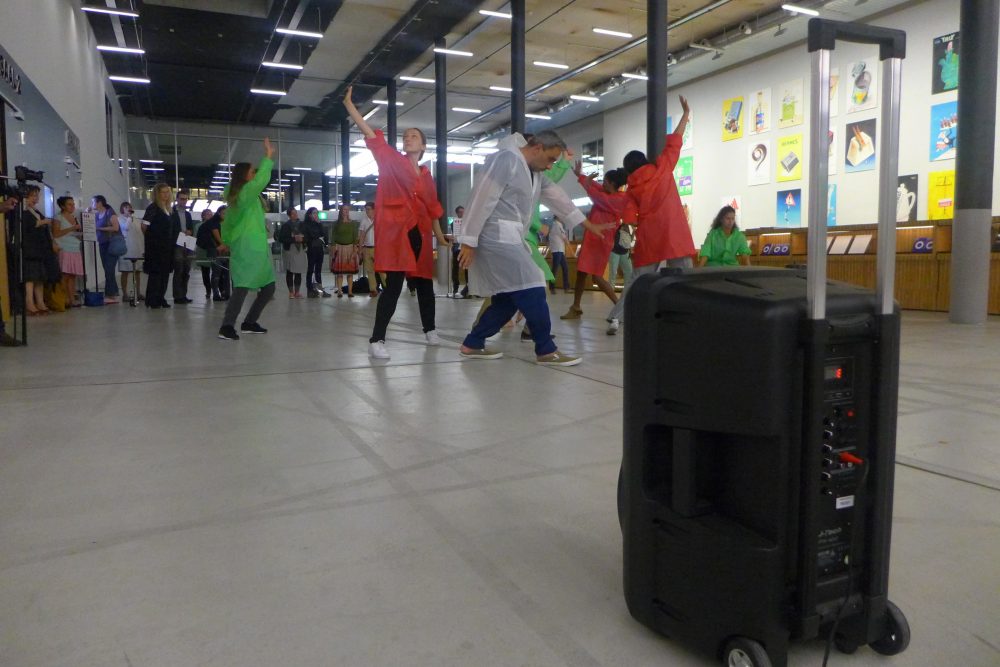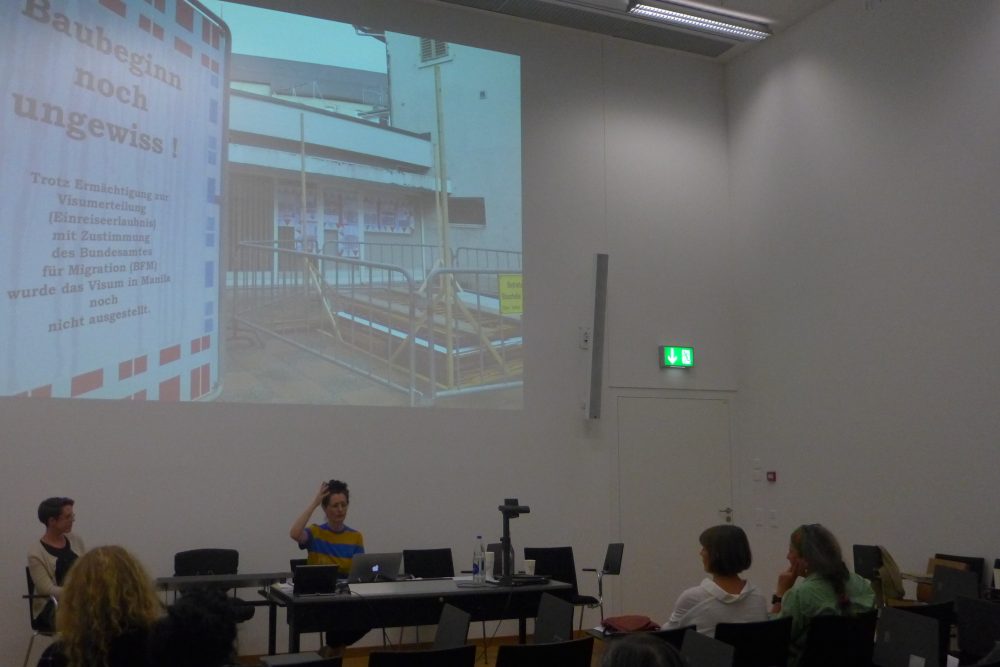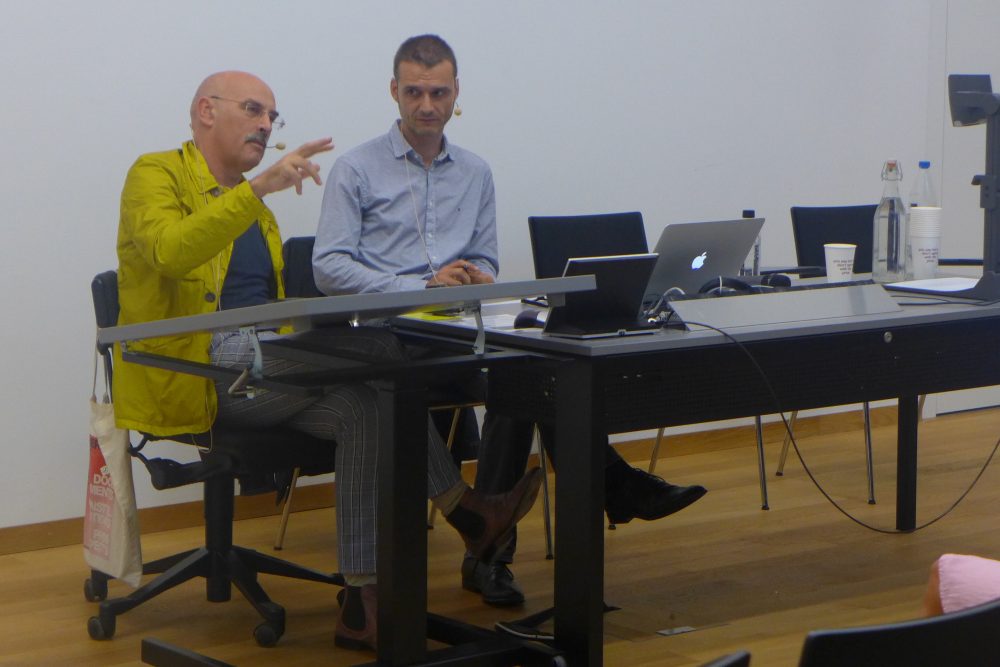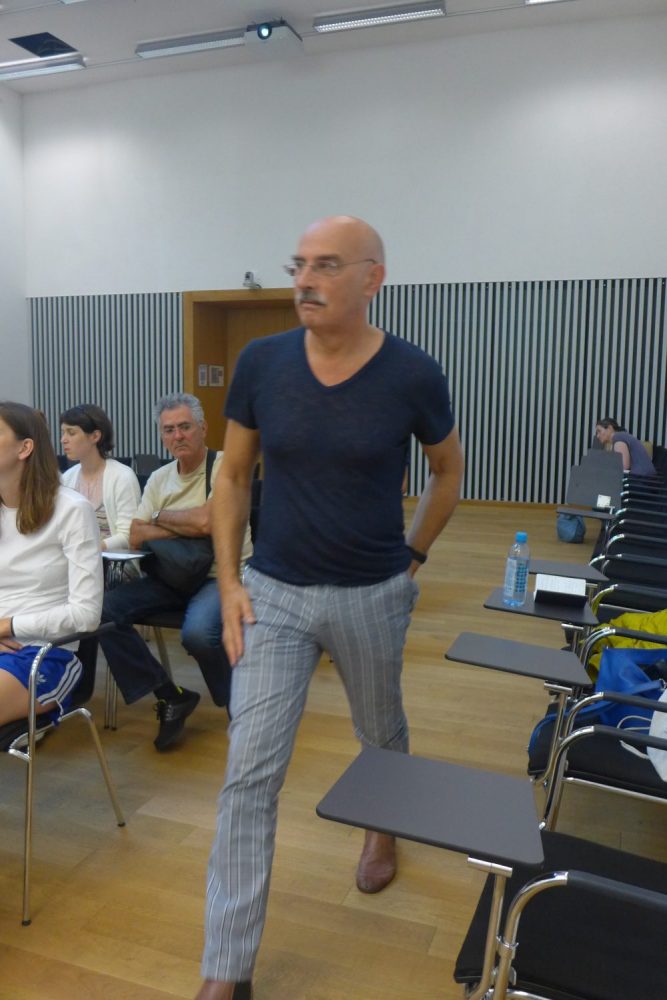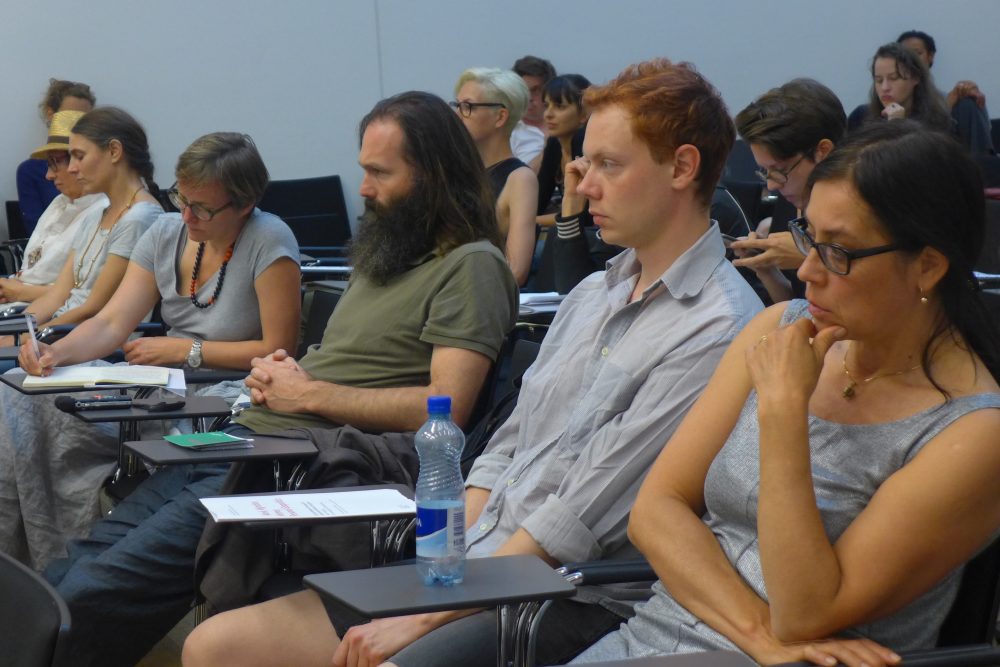Shared Projects
Panel: Work. Migration. Memes. Personal. Geopolitics. Parallel Event of Manifesta
with: Regula Stibi, Dorothee Richter/ Tanja Trampe/ Eleonora Stassi, Johan Frederik Hartle, Maurizio Lazzarato, Alan Roth, Rohit Jain, Petja Dimitrova, Vreni Spiesser, Angela Wittwer, Esther Eppstein and …. Detox Dance
The Parallel Event took place as Issue 30 of OnCurating.org (eds.Tanja Trampe, Dorothee Richter, Eleonora Stassi) and as this panel:
“Work, Migration, Memes, Personal Geopolitics” is being conceived within the framework of the Parallel Events accompanying the Zurich Manifesta 11 devoted to the theme “What people do for money”. Unlike the Manifesta concept, the contributions to this journal relate the changes that have come about in working conditions and circumstances since the early 1990s directly to the multifarious migration movements in Europe.
To this day, changes in working processes and migration movements are usually regarded as mutually isolated “problems”. However, we see the connection between them as a geopolitical reality rooted in political and economic power structures, aspirations to hegemony and the battle for resources, a reality that already began to take shape in the harbingers of neoliberalism. Whereas in the eighteenth century the impoverished working class still found itself directly confronted with a wealthy upper class, today these lines of conflict traverse the globe horizontally.
Work as such, its distribution and the distribution of the profits it yields have shifted radically over the past thirty years. Whereas planning and organization have remained – well networked – in the so-called First World, manual and mechanical types of work have moved to so-called developing countries. A workforce is thus still needed, but geographically the labour is to be carried out in the labourers’ native countries because otherwise the low-wage system would no longer function. However, people migrate not only on account of wages that no longer suffice to secure a livelihood, but also owing to the complex circumstances brought about by wars that, at least on the surface, appear in the guise of religious or racial conflicts. Beneath the surface, however, the struggles rage over claims to hegemony and the territorial domination of resources. Owing to its (relatively) democratic politics and relative prosperity, the “West” has become the auspicious destination of migratory movements. When the newcomers arrive here, their situation again becomes complicated. Our democracies do not welcome them with the open arms they envisioned. Here matters of self-empowerment, for example by means of paid work, play a key role. Only a small number of lucky people on the organization/management level of the “First World” benefit from the globalization of labour conditions – so-called expats who are able to move about autonomously and freely in foreign countries. Mobility and networks are important factors here, and ones that also prove advantageous for the work carried out in the various fields of the creative industry.
The idea on which the Manifesta 11 concept is based – the adherence to the division of the working world into traditional sectors and trades – is one we consider obsolete. Current Post-Fordist structures assign only marginal status to the male-dominated professions in the trades that form the foundation of the Manifesta concept. Work processes and the demands made on wage labour long ago underwent radical change. In the sense of a “new spirit of capitalism” as investigated by Eve Chiapello and Luc Boltanski, we should no longer be content to criticize capitalism, but also point out the crisis of anti-capitalist critique.[1] Directly correlating the Post-Fordist conception of labour and the concrete conditions of (im)migration, we hereby refer specifically to the praxis of the city of Zurich, one third of whose population has a migrant background but no say in political matters, not even on the local level. This is a fact that unfortunately receives no attention whatsoever within the Manifesta’s definition spectrum. A further decision, likewise rooted in this traditionalist approach, is mirrored in the list of artists, in which women artists, find themselves far outnumbered by their male colleagues…
From the perspective of the current discourse on curating cultivated by this journal regardless of the respective specific theme, the Manifesta directors affirm a conservative trend inasmuch as they appointed an artist to act as curator. Within the curatorial discourse there is a strong faction that deliberately takes a stand against the practice of transferring the – problematic – genius concept from the curator to the quasi artist. It is no coincidence that feminist curators (among others) call attention to this problematic issue. Their stance implies a number of alternative ‒ i.e. discursive and institutional-critique-oriented ‒ approaches to curating; after all, they conceive representation as a power constellation. Our attitude – and thus the outlook that finds expression in this edition – is in keeping with a current interest in non-representative curatorial approaches, long-term processes, intensive knowledge acquisition and alternative formats. About the publication: On the basis of a workshop series and using the interview as a tool, the students of the international Postgraduate Programme in Curating at the Zurich University of the Arts examined the multifarious – and, without exception, strongly politically oriented – interrelationships between work, migration and geopolitical individuality. In numerous intensive discussions they acquainted themselves with living circumstances in relation to the city of Zurich and reflected on their own positions, but also especially on the status of migrants from less-privileged circumstances. One part of the process was to read a selection of texts serving as a framework for the widely varied “personal geopolitics” by offering more general deliberations on migration and labour.
Migration movements call the order of an economic system into question. Giorgio Agamben takes this circumstance as his point of departure when, in his text “Beyond Human Rights”, he describes the transcultural as an oppressed concept. “In the face of state sovereignty, which can affirm itself only by separating in every context naked life from its form, they [intellectuality and thought] are the power that incessantly reunites life to its form or prevents it from being dissociated from its form.”[2] A vague form of existence not bound to any borders gives migrants a subversive power; their fluctuation raises questions about nationalist definitions. For this reason, migration is often combatted although it is in no way economically or socially sensible to combat it.
[1] Luc Boltanski, Eva Chiapello: The New Spirit of Capitalism; New York/London: Verso, 2006.
[2] Giorgio Agamben, Beyond Human Rights; in Paolo Virno, Michael Hardt, Radical Thought in Italy: A Potential Politics; Minneapolis: University of Minnesota Press, 1996; p. 159-165.

